8+ Sample Business Lease Agreements
-
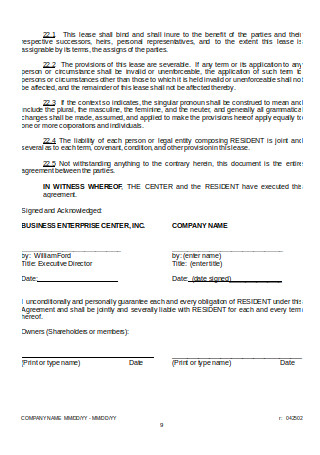
Business Enterprise Lease Agreement
download now -
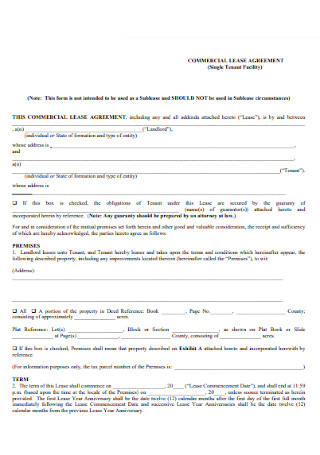
Commercial Business Lease Agreement
download now -
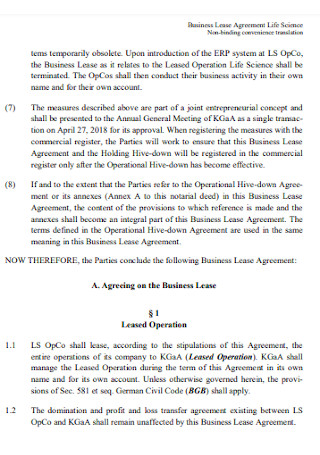
Business Lease Agreement for Life Science
download now -
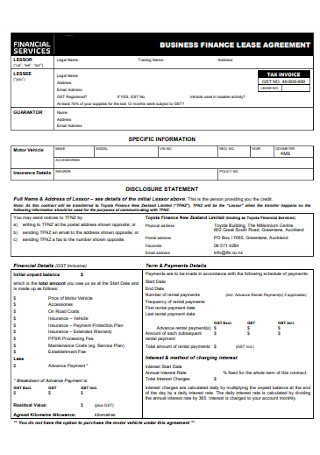
Business Finance Lease Agreement
download now -
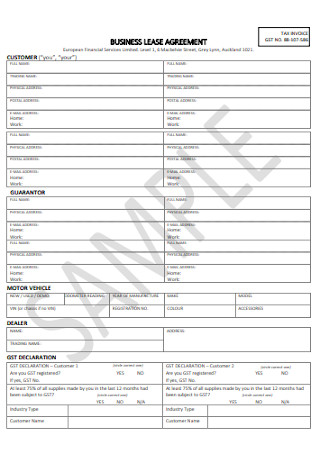
Standard Business Lease Agreement
download now -
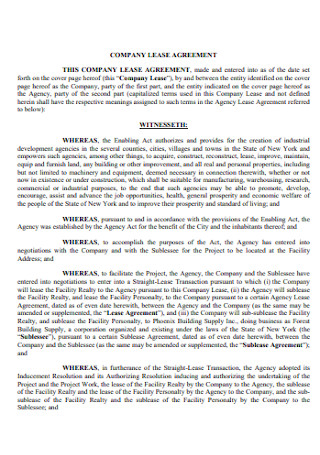
Company Business Lease Agreement
download now -
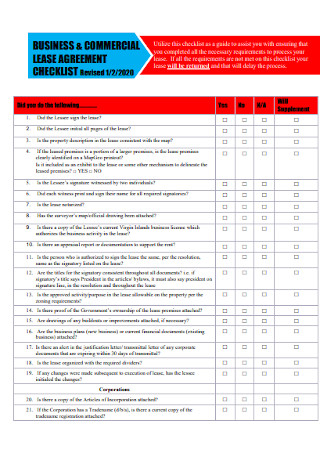
Business and Commercial Lease Agreement
download now -
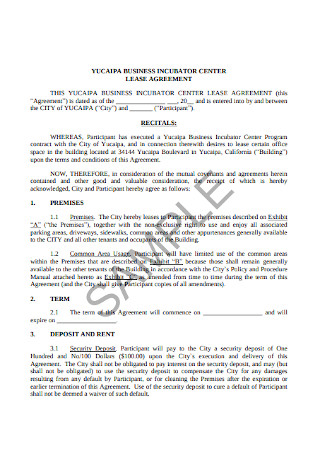
Simple Business Lease Agreement
download now -
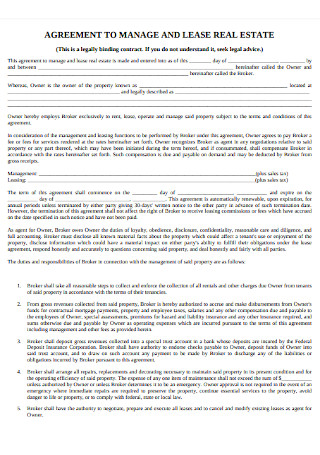
Real Estate Business Lease Agreement
download now
FREE Business Lease Agreement s to Download
8+ Sample Business Lease Agreements
What Is a Business Lease Agreement?
What Is the Use of a Business Lease Agreement?
What Is the Importance of a Business Lease Agreement?
What Is Difference Between a Business Lease and a Residential Lease?
Do Commercial Tenants Get Any Legal Protections Outside of the Lease Agreement?
Types of Business Lease Agreement
Steps in Writing a Business Lease Agreement
FAQs
Why is a business lease proposal important?
Is a business lease proposal present in every discussion?
Is it possible for a lessor and a lessee to come to terms on the common ground between two alternative proposals?
What Is a Business Lease Agreement?
A business lease agreement is a contract between a business and a landlord under which the business rents office space or other commercial property. The term “commercial” simply indicates that the lease is for business purposes rather than for residential purposes. Any type of commercial tenant can be found in commercial properties, ranging from a lone proprietor with an expanding small firm to a large multinational organization.
Other templates are available on our website, and you can use them whenever you need them. They are as follows: real estate purchase contract, grant proposal, work contract, sponsorship contract, position agreement, staffing agreement, bidding contract, work agreement, project manager proposal, tenancy contract, delivery note, and other similar templates are available.
What Is the Use of a Business Lease Agreement?
Leasing agreements are a common type of document that both lessors and lessees use to record the important facts and terms of a particular lease agreement. This document is widely used to record the basic facts and terms and conditions of a lease agreement for a specific location. Anyone interested in leasing Commercial Spaces or any other form of property may find that their lease is taken over by another party after they have signed the lease agreement. An innovative method that can effectively reduce start-up costs by a significant amount is presented here. The landlord must be presented with an accurate lease takeover proposal before the takeover of a business lease can be negotiated. When you make use of the template for leasing property, you can save money on your initial outlay of capital. You should also see our security services proposal.
What Is the Importance of a Business Lease Agreement?
If you are considering signing a commercial leasing agreement, make sure the conditions will satisfy your company’s needs before signing. Failure to determine requirements prior to signing a lease agreement can result in unfavorable implications down the road. Commercial leases typically include the following clauses, among others:
1. The Amount of the Rent
A landlord will determine the amount of rent to charge based on the square footage of the available space. Make sure you understand how much square footage the landlord is using to determine the rent. For example, does the footage include the elevator and the walls of the building’s interior? In the event that it is practicable, determine who would be liable for other costs such as utilities and property taxes as well as for insurance and repairs.
2. Rent Increases as a Result
Commercial lease agreements will often provide for an increase in rent based on a percentage-based formula each year. Discuss with your landlord the possibility of capping the percentage rise in order to avoid excessive rental prices in the future.
3. Refundable Security Deposit
The amount of the security deposit and the conditions under which it will be returned should be verified in the lease.You should also see our video production proposal.
4. Longevity of the Lease Agreement
Most landlords prefer long-term lease agreements with their tenants. This, on the other hand, may not be a good idea for a new company. Inquire about a short-term lease with the option to renew with the landlord. This may result in a higher rent payment, but it is a preferable option to subscribing to a long-term lease agreement.
5. Improvements
When it comes to improvements or alterations to the property, a lease should specify which party is responsible for paying for them and whether the tenant is responsible for returning the unit to its original condition at the conclusion of the tenancy.
6. The Property’s Detailed Description
The property under lease should be described in detail in the lease. If the lease specifies that it includes restrooms, communal facilities, a kitchen area, and a parking facility, this should be made clear in the contract.You should also see our property inspection checklist.
7. Signs
Make assured that the leasing agreement does not ban the placement of signs that are visible from the street if doing so is essential to the success of the business operation. Additionally, check your local zoning rules to see if any additional restrictions are in place.
8. Make Use of the Clause
Many lease agreements may include an usage clause that will describe the type of activity that the tenant is permitted to do on the property. It is necessary to have these clauses in place to safeguard the property from harm as well as to limit the liability of the property owner. If at all possible, request a broad usage provision in case the company decides to branch out into other operations.
9. Clause of Exclusivity
This is a critical clause for retail enterprises who are renting space in a commercial complex or shopping center. A landlord will be prohibited from renting space to a competitor if the lease has an exclusivity clause.
10. Assigning and Subletting a Property
Inquire with the landlord about the possibility of assigning the lease or subletting the space to another tenant. This is an important phrase because, even if the tenant’s business fails or relocates, the tenant is still liable for paying the rent. However, if the tenant has an assignment or sublet provision in place, the firm can find another tenant to cover the cost.
What Is Difference Between a Business Lease and a Residential Lease?
While the fundamental concepts and terms of a business lease are similar to those of a residential lease that you might have signed, there are several important variations between business and residential leases that you should be aware of before signing either one. Residential leases are frequently heavily regulated, with some clauses that cannot be modified by law—even if both parties agree to waive those requirements—in order to protect the interests of the landlord and tenant. Business leases, on the other hand, are subject to few restrictions beyond those imposed by basic contract law. Furthermore, company leases provide a greater degree of customizability. However, whereas the majority of residential leases are written using nearly the same boilerplate language, a commercial lease must be carefully negotiated and reviewed to ensure that it covers everything you want.
Do Commercial Tenants Get Any Legal Protections Outside of the Lease Agreement?
The distinctions between commercial and residential leases are also relevant in the context of dispute resolution. It is possible for a residential lessee to rely on local housing regulations and consumer safeguards to assist in the preservation of tenants’ rights. A business lessee, on the other hand, generally has no rights other than those that are specifically specified in the lease agreement with the landlord. Some states do have a limited list of mandated landlord disclosures or other lease requirements, but others do not. Major public health and safety issues, such as asbestos warnings or the usage of the property for illicit purposes, are typically the focus of these investigations. You should also see our tenant checklist.
Types of Business Lease Agreement
The type of lease and the basis for determining rent should both be included in the lease agreement. The terms listed above are conventional agreements, but they, like all other aspects of a commercial lease, are subject to negotiation.. There are many different forms of business leases available, in addition to the traditional monthly or annual rent arrangement.
Steps in Writing a Business Lease Agreement
Knowing what to include in your Lease Agreement is an obvious benefit of being aware of what to include in your Lease Agreement. When conducting business with another party, the company lease agreement is the most important document to have in place. To put it mildly, your business lease agreement should be the best possible in its field of expertise. Take a look at the following suggestions to learn more about how to write one. If you’ve already written one, you can use this to refresh your recollection on what you were thinking.
-
1. Creating a Cover Letter for Your Business Lease Agreement
Open any Word document in a new window to begin creating a title page. You can use any template you choose. After you have completed the title page, you should write a cover letter that includes all of the relevant follow-up information regarding the prospective leasing inquiry that you have received. In your letter, explain why you want to lease a property in this particular region and what you intend to do with the rented property.
-
2. Provide a Succinct Summary of Your Proposal
Begin by providing a brief summary of the lease proposal you are submitting on the next new page that appears. This should include the objectives of your organization as well as the objectives that your organization has set for itself. Keep your message concise and to the point. You should also see our sales summary report.
-
3. Specify in Detail the Tenant’s Business Operations
Describe the current state of operations for your firm or business. You may offer background information on the topic matter to help the reader gain a better idea of the people with whom they will be collaborating.
-
4. Prepare a Cost Summary for Your Target Audience to Consider
Once you have outlined the operations of your company in the contract sample, it is feasible to include a cost breakdown for the leased property in the contract sample as an addendum. When inputting the details of the expenses, you can use a table to help you organize your information and keep track of your progress.
-
5. Make Sure to Include a Detailed List of the Contract’s Terms and Conditions
It is required to reveal information regarding the premises, the tenant’s products, and the tenants services in order to comply with this part of the lease agreement. It is necessary to provide detailed explanations of the payment and confidentiality conditions.
-
6. Mention the Benefits of Using a Business Lease Agreement in Your Speech
Create a list of the benefits that can be achieved if the landlord agrees to the requested rent increase at the end of the process. List them using bullet points if you want to be more organized, or simply number them to construct a list.
Business lease law is continuously evolving and might be difficult to understand for those who are not attorneys. If you have questions about business lease conditions or other issues, or if you want to be sure that you prevent problems in advance, seeking the advice of a specialist may be beneficial in your situation.
FAQs
Why is a business lease proposal important?
A business lease agreement is required to offer a potential company settlement to a landlord.
Is a business lease proposal present in every discussion?
Yes. Enclose a copy of your leasing proposal. You are presenting your leasing agreement.
Is it possible for a lessor and a lessee to come to terms on the common ground between two alternative proposals?
It all depends on where they can start. Due to divergent opinions of lessor and lessee Talking about it could help find common ground.
A business lease is a legal agreement between a landlord and a business that allows the latter to rent out real estate. The majority of firms will opt to rent rather than own property because it takes less investment money. The conditions of business lease agreements are more difficult than residential lease agreements since they are negotiable and vary widely from one lease to the next. If you are considering signing a business lease, it is critical that you understand the terms of the lease, which specify the rights and obligations of each party.
